Somerset children's social services: Behind the scenes
- Published
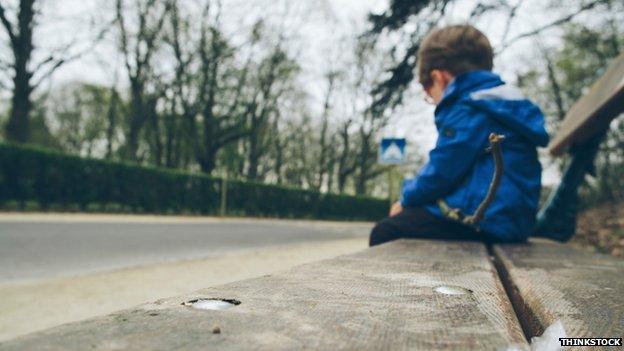
The county council has said it intends to recruit 100 social workers to help keep children safe
In March Somerset County Council's children's social services was rated "inadequate" for the second time. A new director had just taken over the department and a team of government trouble-shooters was sent in. But what is it like for the social workers on the frontline? I was given exclusive access and spent a day with the children's social workers for the Mendip area.
It's 09:00 on a Wednesday and I am in a long office with bright green walls in Shepton Mallet.
About 40 people are on the phone on headsets, working at computers and talking to colleagues.
They are the people who try to keep Somerset's most vulnerable children safe.
I join the Children Looked After team, responsible for children who have been taken into care, for their morning meeting.
It is led by Cathy Attfield and attended by her four colleagues who are in the office that morning.
Two others are in court and another is studying and supervising a contact visit between a parent and their child who has been taken into care.
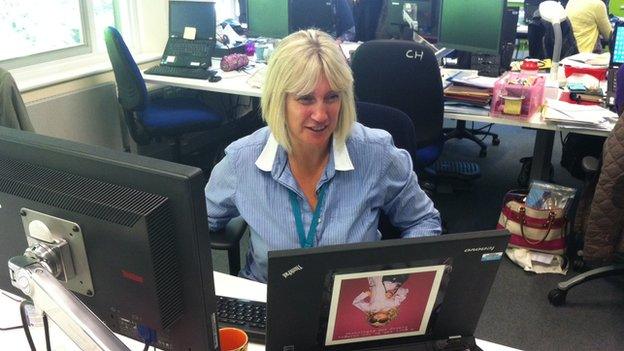
Cathy Attfield heads the Children Looked After team at the county council
They meet twice a week to discuss cases which are particularly troubling individual social workers, as well as ensuring statutory visits - to doctors, dentists and schools - are happening on time.
"We are corporate parents so we do have the responsibilities to work just as any other parent would - and we can be quite pushy parents sometimes," says Ms Attfield.
I cannot write about the details of what is discussed but at one point I am welling up hearing about the situations children they are working with have been in.
"We have to think the unthinkable," says one social worker of their approach to cases.
After an hour they disband.
Ms Attfield outlines the rest of her day: "I will be authorising care plans and assessments, meeting with a safeguarding colleague and going out to visit a dad on the other side of the county and talk about his contact needs with his children who are in care."
When I see her a few hours later, on her way to visit that father, she has realised she also has to audit the caseloads of four social workers by the end of tomorrow.
Maxine qualified as a social worker 18 months ago and is in the Children Looked After team.
"It's about, for me, advocating for these children, and it's about not giving up," she says.
"Some of the children will actually try to make you give up on them, because that's what they've had in the past.
"And they do the same with foster carers, so they can say 'See, nobody wants me'. But they have to know that we won't give up on them."
With 25 children on her books, Maxine is a busy woman.
"It is a high caseload and it is too high, and we all recognise that," she says.
"I would love my caseload to be less, so I could do some of the one-to-one work which I'm not able to do at the moment and I have to give to other people to do."
She says she is looking forward to 100 new social workers being recruited by the county council.
Janine Newport is a manager in the assessments team.
It will often be the first point of contact a child or family will have with social workers, who will go and visit them if a concern is raised - by a school, GP, police or even the family themselves.
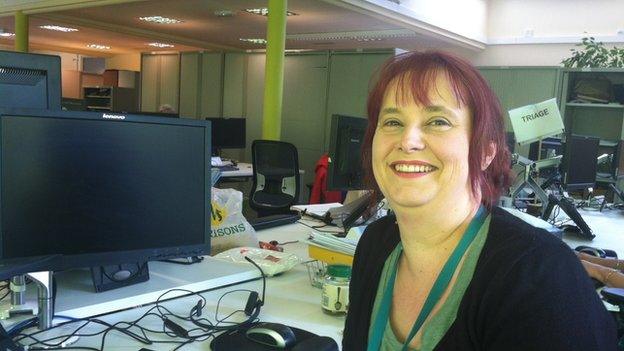
Janine Newport helps to assess whether a child is at immediate risk of harm
"We've had two cases come in that we need to look at very urgently today" she tells me at 11:00.
"A social worker's gone out gathering information, looking at whether or not a child is at immediate risk and working with our colleagues in health and the police.
"We need to make sure that the children that we've been notified about this morning are going to be safe this evening."
That brings home for me the gravity of their work.
I ask what the less urgent, planned assessments her team mostly carry out, entail.
"They would be undertaking observations throughout that visit - so looking at what the home is like, what the interactions between parent and children are," she says.
"They would be asking the parents what they think are their strengths and what are the areas they're struggling with.
"They'd be asking to speak to the children; if the children are old enough, asking to speak to them on their own.
"You'd be looking at the children's bedrooms to get a sense of where they're living and sleeping."
I catch up with her again at 15:00 to find out more about the urgent cases that came in during the morning.
"We've been quite successful in arranging some safety plans for those children," she says.
"We'll start assessments with the families, but we've got good outcomes for those children today."
- Published14 May 2015
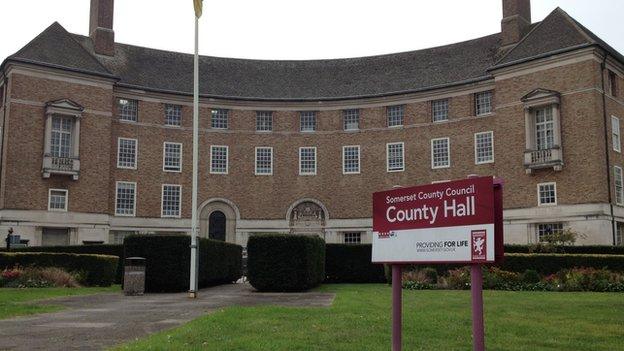
- Published24 July 2014
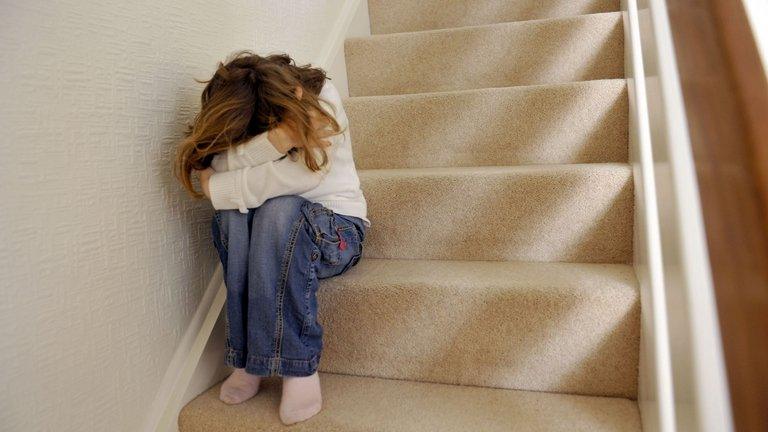
- Published14 January 2014
